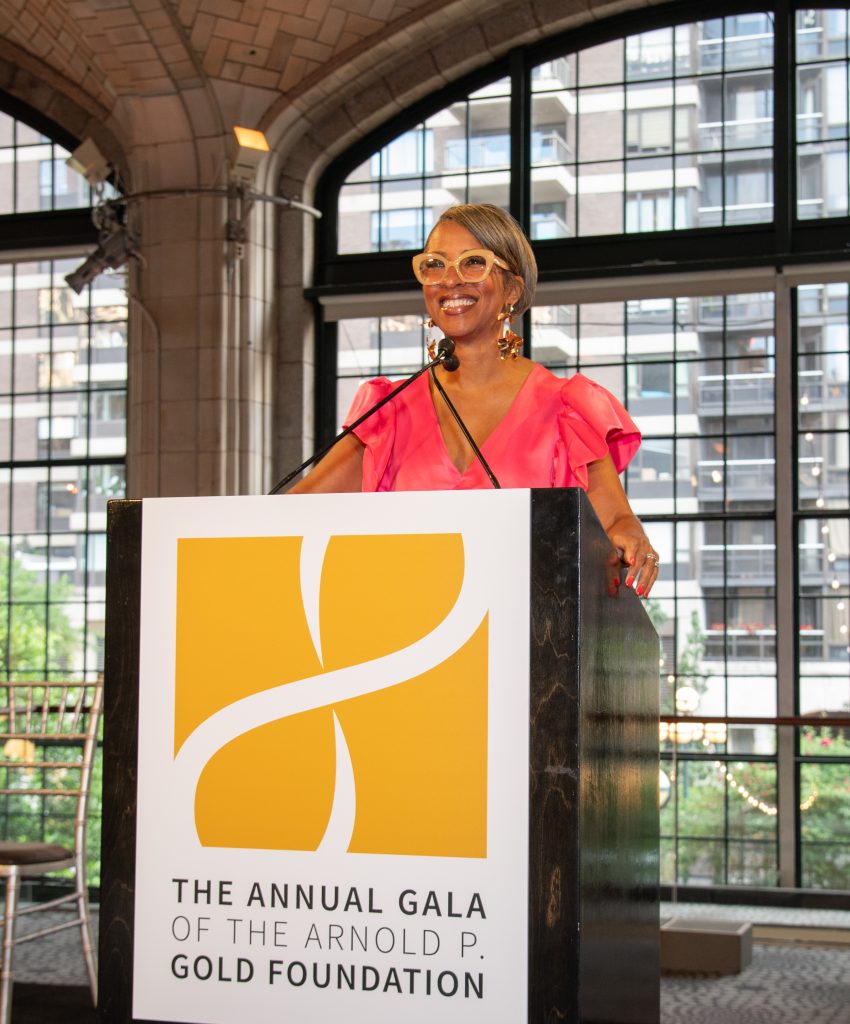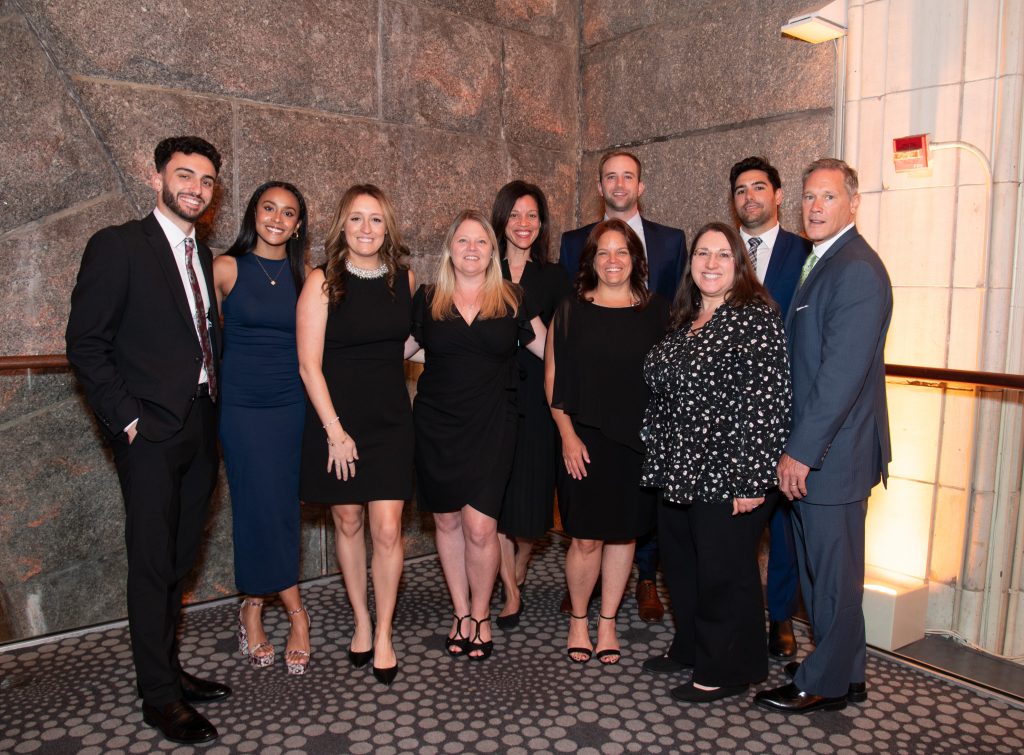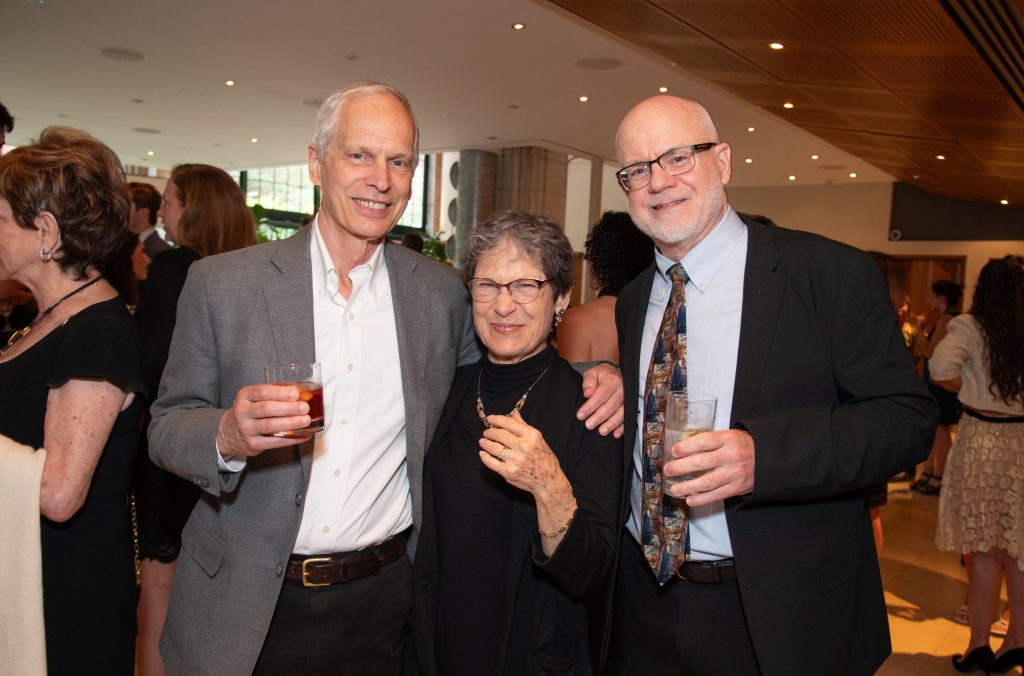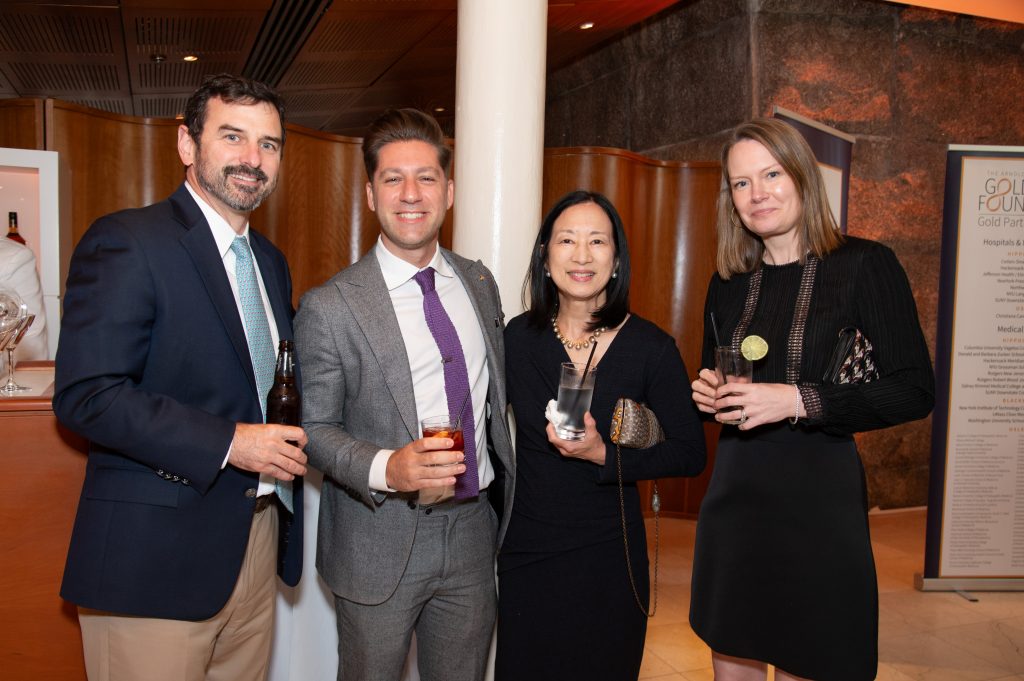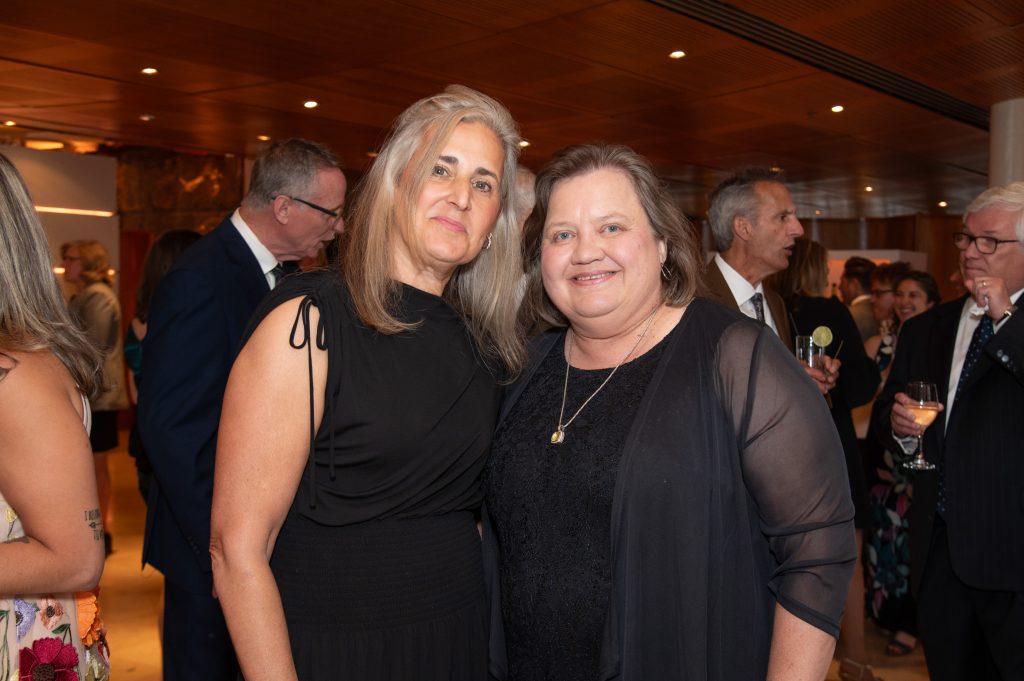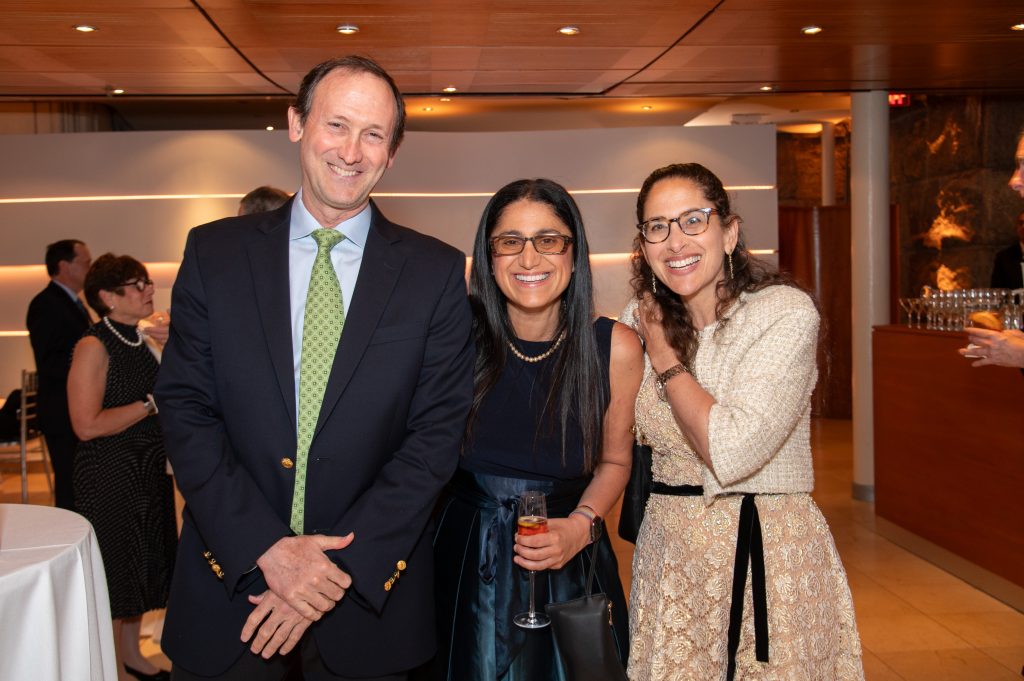
The Jeffrey Silver Humanism in Healthcare Research Roundup features summaries of recently published studies on humanism in healthcare. To receive email notification of new studies once per month, enter your information here and select “Jeffrey Silver Research Roundup” from the checkboxes at the bottom. See previous posts in this series.
A pilot interprofessional education curriculum for optimizing mental health in chronic pain treatment and understanding interprofessional practice Perzhinsky J, Schachman KA, Cheng CI, Nagia S, Noveloso B, Sawyer T, Lepisto BL, Sukhera J, Cleek EN, Chisolm MS. Cureus. 2024 Aug 20;16(8):e67292. doi: 10.7759/cureus.67292. PMID: 39165626; PMCID: PMC11334385. Free full text The development of this IPE curriculum was supported with a Picker Gold GME Challenge Grant awarded to Dr. Juliette Perzhinsky. Dr. Perzhinsky, Dr. Javeed Sukhera, and Dr. Margaret Chisolm have been Gold Foundation grantees and Gold Humanism Scholars at the Harvard Macy Institute. Dr. Elizabeth Cleek is the Chief Operating Officer and Senior Vice President, Programs, of the Gold Foundation.
The late 1990s marked the beginning of the opioid epidemic, characterized by increased opioid prescribing by clinicians and resulting in a sharp rise in opioid-related fatalities. This escalation in opioid use and the related complications from chronic pain and comorbid mental health conditions have underscored the need for enhanced training in safe opioid prescribing and addiction recognition within graduate medical education (GME). Despite the critical nature of this training, the implementation of such education varies significantly among clinical training programs, often leaving clinicians underprepared. Dr. Juliette Perzhinsky and colleagues conducted a prospective observational study of a pilot interprofessional education (IPE) curriculum aimed at improving the handling of chronic pain and mental health conditions. This curriculum was designed to enhance trainee self-efficacy in managing these issues and encourage a team-based approach. Twenty-five trainees, including resident physicians, family nurse practitioners, and physician assistant students, took part in five interactive IPE sessions. Their self-efficacy in chronic pain and mental health management was assessed using a bespoke tool, and their attitudes toward interprofessional practice were evaluated using the Attitudes Toward Health Care Teams scale. The results indicated that, although the curriculum did not alter attitudes towards interprofessional practice, it effectively improved self-efficacy in managing chronic pain and mental health conditions, particularly among non-physician trainees. Dr. Perzhinsky and colleagues concluded that while the pilot IPE curriculum shows promise in enhancing self-efficacy for managing complex care needs, further work is needed to address attitudinal changes towards interprofessional collaboration and to expand the curriculum’s reach and impact.
Tell Me More® as a tool for provider connectedness with hospitalized patients: A mixed-methods study Belin B, Aron I, Bhagat S, Fornari A, Ahuja TK. J Patient Exp. 2024 Aug 16;11:23743735241272167. doi: 10.1177/23743735241272167. PMID: 39157763; PMCID: PMC11329894. Free full text Dr. Alice Fornari has been a Gold Foundation grantee.
Compassion fatigue and burnout have escalated among healthcare team members since the onset of the COVID-19 pandemic, exacerbated by prolonged stress and inadequate resources, which compromise patient care and clinician well-being. Bryana Belin and colleagues investigated the impact of the Tell Me More® (TMM) program, a Gold Foundation communications tool designed to enhance patient-clinician interactions, on compassion fatigue and burnout. The mixed-methods study consisted of surveys distributed to healthcare professionals (n=72) before and after implementing TMM on a hospital floor, complemented by post-intervention semi-structured interviews. The surveys aimed to assess changes in clinician-patient connection, while the interviews explored deeper impacts on clinician attitudes and patient interactions. Results revealed that three out of eight survey items showed significant improvements post-TMM implementation. These included (1) I know my patients very well, (2) my patients know me very well, and (3) I remember my patient very well when I see them. Similarly, the interviews highlighted four major themes: (1) increased connectedness to patients, (2) better differentiation between a person and their illness, (3) improved communication with patients’ support networks, and (4) enhanced engagement with non-verbal patients. These findings suggest that TMM fosters a deeper, more empathetic connection between staff and patients, potentially mitigating feelings of burnout and compassion fatigue. The authors concluded by endorsing TMM as an effective tool for strengthening relationships between healthcare professionals and patients in hospital settings. By promoting a humanistic approach to care, TMM appears to alleviate some of the emotional and psychological strains on clinicians, pointing to its potential for broader application in addressing compassion fatigue and burnout.
The relationships between trust beliefs in physicians by children with asthma, those by their mothers and the children’s medical health Petrocchi S, Rotenberg KJ. Child Care Health Dev. 2024 Nov;50(6):e13334. doi: 10.1111/cch.13334. PMID: 39359205.
Interpersonal trust between physicians and patients is a vital aspect of humanistic healthcare, but it has not yet been fully explored despite its known implications for healthcare outcomes. To investigate this, Drs. Serena Petrocchi and Ken J. Rotenberg used existing data from a previous study to understand how trust in physicians affects children’s health outcomes in asthma cases. This re-analysis involved a two-sample design where the trust beliefs of children with asthma and their mothers in their physicians were examined in relation to the children’s health. Results from this re-analysis indicated significant relationships between the children’s trust in physicians and their quality of life, which increased over time. While both high and low extremes of trust were linked to poorer health outcomes, a moderate level of trust seemed beneficial. Relationships were also consistent between children’s trust in physicians and their adherence to medical regimes, suggesting that trust directly influences treatment compliance. In their conclusion, the authors emphasized the complex nature of trust in healthcare settings. They suggest that a balanced level of trust in physicians is crucial for optimal health outcomes in children with asthma, pointing to the need for healthcare professionals to foster and maintain trust to improve both adherence to treatments and overall quality of life.
“Doctor ChatGPT, can you help me?” The patient’s perspective: cross-sectional study Armbruster J, Bussmann F, Rothhaas C, Titze N, Grützner PA, Freischmidt H. J Med Internet Res. 2024 Oct 1;26:e58831. doi: 10.2196/58831. PMID: 39352738. Free full text
Large language models (LLMs) like ChatGPT have increasingly influenced various domains, including healthcare, by providing solutions to complex tasks and easy access to information. Despite their utility in translating texts, summarizing, and answering questions, their integration in healthcare raises concerns about their accuracy and the potential for harm due to errors in medical context interpretation by patients. Drs. Jonas Armbruster and colleagues investigated these issues through a cross-sectional study comparing patient and expert responses to health-related queries handled by ChatGPT. While several other studies have examined physicians’ assessment of ChatGPT answers, this is the first one study, to the authors’ knowledge, to examine feedback by both patients and physicians. In this study, researchers took 100 real patient questions in five fields (traumatology, general surgery, ENT, pediatrics, internal medicine) that were answered by both a web-based expert panel and ChatGPT. Patients and medical specialists in the relevant field were asked to rate the answers (while not knowing who or what provided them) on a scale of 1 to 5 for both empathy and usefulness. In addition, the medical specialists were asked to assess “Was the response professionally correct?” and “Does the answer contain potentially harmful advice?” Answers by ChatGPT garnered significantly higher scores by both physicians and patients, in every category, with the biggest difference found in empathy ratings (4.49 mean for ChatGPT vs. 3.07 for the panel of human experts.) Physicians also scored ChatGPT’s answers higher for correctness and found fewer incidences of potentially harmful advice. Researchers noted with alarm there was no difference in patient ratings of empathy and usefulness between answers found to be potentially harmful and unharmful. They concluded that patients could not tell the difference and thus recommended that ChatGPT only be used as a supplemental tool for patient information in conjunction with healthcare professionals.
Sense of belonging among medical students, residents, and fellows: Associations with burnout, recruitment, retention, and learning environment Leep Hunderfund AN, Saberzadeh Ardestani B, Laughlin-Tommaso SK, Jordan BL, Melson VA, Montenegro MM, Brushaber DE, West CP, Dyrbye LN. Acad Med. 2024 Sep 30. doi: 10.1097/ACM.0000000000005892. Epub ahead of print. PMID: 39348173. Dr. Colin P. West and Dr. Liselotte Dyrbye have been Gold Foundation grantees.
A sense of belonging significantly influences meaning, identity, and life satisfaction and poses important questions about inclusion and value in social settings. Dr. Andrea N. Leep Hunderfund and colleagues conducted a survey exploring how a sense of belonging affects medical students, residents, and fellows across different social contexts and its association with burnout and recruitment retention indicators. The study surveyed 2,257 medical trainees at a large U.S. academic health center, assessing their sense of belonging within their school or program, the organization, and the surrounding community, alongside burnout and their likelihood to recommend or stay with the organization. Among the 1,261 who responded (56%), participants’ results showed that a strong sense of belonging was most felt within the school or program context, closely followed by the organization, and was significantly associated with reduced burnout and increased organizational loyalty. Furthermore, strong belongingness correlated with lower odds of burnout and higher likelihoods of recommending the organization and accepting job offers. The authors concluded by highlighting that belongingness not only varies by context but is also a crucial factor linked to both personal well-being and professional decisions among medical learners, underscoring the need for targeted interventions to enhance this feeling in educational settings.
Exploring the implicit meanings of ‘cultural diversity’: a critical conceptual analysis of commonly used approaches in medical education Zanting A, Frambach JM, Meershoek A, Krumeich A. Adv Health Sci Educ Theory Pract. 2024 Sep 14. doi: 10.1007/s10459-024-10371-x. Epub ahead of print. PMID: 39276258. Dr. Janneke Frambach has been a Gold Foundation grantee.
Medical education increasingly focuses on preparing students to handle cultural diversity in healthcare settings by enhancing awareness and competency, although the application of these concepts varies and sometimes leads to unintended negative effects such as polarization and stigmatization. Albertine Zanting and colleagues conducted an analysis of 52 articles to explore how cultural diversity is conceptualized within medical education and its implications for educational practice and healthcare delivery. Their study revealed four distinct conceptualizations of cultural diversity as (1) a fixed patient characteristic, (2) multiple fixed characteristics, (3) a dynamic outcome impacting social interactions, and (4) as power dynamics. Each conceptualization carries different assumptions and implications for how medical education is delivered and how doctors interact with a diverse patient population. The study highlights the complexities and inherent biases that can influence educational outcomes and patient care, emphasizing the need for a nuanced understanding of cultural concepts in medical training. The authors suggest that embracing these diverse conceptualizations can enhance the relevance and effectiveness of medical education in addressing the varied needs of a diverse patient population, encouraging educators to integrate comprehensive cultural perspectives and reflective practices into the curriculum.
Investigating feelings of imposterism in first-year medical student narratives Kruskie ME, Frankel RM, Isaacson JH, Mehta N, Byram JN. Med Educ. 2024 Sep 15. doi: 10.1111/medu.15533. Epub ahead of print. PMID: 39279321. Dr. Richard Frankel and Dr. Harry Isaacson have been Gold Foundation grantees.
Imposter phenomenon (IP) in medical education has been identified as a significant factor affecting students’ psychological wellness and career outcomes, particularly as they struggle with feelings of inauthenticity and self-doubt regarding their accomplishments and belonging in the medical field. Imposter phenomenon is associated with emotional exhaustion and burnout and can impact the delivery of humanistic patient care. Megan Kruskie and colleagues undertook a qualitative analysis of 233 reflective essays from medical students, utilizing social identity theory to investigate how IP is experienced and articulated within the student population. Their analysis revealed that 52% of the essays showed signs of IP, with major themes related to students comparing themselves to idealized versions of medical students and physicians, and expressing concerns about how they are perceived by others. This led to doubts about their fit and legitimacy in the medical profession. This widespread occurrence suggests that IP is a prevalent issue among first-year medical students regardless of background or institution. In their conclusion, the authors recommended that medical education programs incorporate more opportunities for reflective journaling and sharing personal stories to normalize imposter feelings and support professional identity formation, thereby helping students navigate their self-doubt more constructively.
To speak or not to speak: Factors influencing medical students’ speech and silence in the operating room Brommelsiek M, Javid K, Said T, Sutkin G. Am J Surg. 2024 Sep 18;238:115976. doi: 10.1016/j.amjsurg.2024.115976. Epub ahead of print. PMID: 39332105. Dr. Margaret Brommelsiek has been a Gold Foundation grantee.
Medical students often find the operating room (OR) environment intimidating, which can impact their willingness to speak up during surgical clerkships. Dr. Margaret Brommelsiek and colleagues explored this dynamic using constructivist grounded theory to analyze 37 interviews focusing on the influences that either encourage or discourage medical students from voicing their thoughts in the OR. Their qualitative analysis revealed that students’ decisions to speak or remain silent hinge on their perception of the OR as a safe learning environment. The study identified that (1) more robust preparation, (2) heightened awareness of critical moments, and (3) informal communication with team members are pivotal in encouraging students to speak up. Dr. Brommelsiek and her team concluded that fostering interpersonal relationships, understanding the mood within the OR, and involving students in case-related tasks are crucial for enhancing students’ psychological safety and assimilation into the surgical team, thereby improving their educational experience in the OR.
Taking the next step: How student reflective essays about difficult clinical encounters demonstrate professional identity formation Freeman N, Shapiro J, Paguio M, Lorkalantari Y, Nguyen A. Clin Teach. 2024 Aug 14:e13795. doi: 10.1111/tct.13795. Epub ahead of print. PMID: 39140290. Johanna Shapiro has been a Gold Foundation grantee.
Medical students encounter significant emotional and behavioral challenges during difficult clinical interactions, which play a crucial role in their professional development and psychological well-being. Nicholas Freeman and colleagues conducted thematic analysis using reflective essays from a cohort of medical students at different stages of their education to understand changes in how students perceive difficult clinical encounters and their professional identity formation (PIF). The study involved 69 students who provided reflective essays in their third and fourth years, analyzed to trace changes in their views and reactions to challenging patient care situations. They found that medical students’ perceptions of themselves, patients, and preceptors evolved significantly from their third to fourth year. Students reported increased empathy, patient-centeredness, and ownership of patient care in their fourth year, indicating growth in professional attributes and compassion. However, students also experienced persistent negative emotions following these encounters, suggesting that while professional development occurs, emotional challenges remain. The researchers concluded that medical education should not only foster professional growth but also provide support to address the emotional residues from difficult clinical encounters. This support could enhance students’ overall well-being and readiness to handle the complexities of patient interactions in their future careers.
Self-compassion for healthcare communities: exploring the effects of a synchronous online continuing medical education program on physician burnout Gardiner P, Pérez-Aranda A, Bell N, Clark DR, Schuman-Olivier Z, Lin EH. J Contin Educ Health Prof. 2024 Sep 24. doi: 10.1097/CEH.0000000000000574. Epub ahead of print. PMID: 39311747. Dr. Zev Schuman-Olivier has been a Gold Foundation grantee.
Physician burnout is a widespread issue that may be at least partially mitigated by self-compassion training. To investigate this potential role of self-compassion training, Dr. Paula Gardiner and colleagues conducted a prospective observational study of a synchronous online continuing medical education program, Self-Compassion for Healthcare Communities (SCHC). The SCHC program was delivered over six 1-hour weekly sessions via Zoom, focusing on fostering self-compassion and well-being among physicians. The study’s findings, based on responses from 48 physicians who completed both pre- and post-program surveys from a total of 116 attendees, demonstrated significant reductions in burnout levels and improvements in compassion satisfaction, secondary traumatic stress, self-compassion, resilience activation, and job satisfaction. Qualitative feedback from 91 participants revealed a high satisfaction rate with the program, highlighting the benefits of learning self-compassion and the value of connecting with peers facing similar challenges. Dr. Gardiner and colleagues concluded that while the SCHC program effectively reduces burnout and enhances various aspects of physicians’ professional quality of life, addressing physician burnout comprehensively will also require systemic changes in healthcare delivery.
The impact of transitional shock on newer nurses in a contemporary healthcare environment Holtz H, McQueen A, Weissinger G, Alderfer M, Swavely D, Sledge JA, Yu L, Pohlman M, Adil T, Mugoya R, Minchhoff R, Rushton C. J Nurs Adm. 2024 Sep 1;54(9):507-513. doi: 10.1097/NNA.0000000000001468. PMID: 39162421. Dr. Cynda Rushton has been a Gold Foundation grantee.
Transitioning from a nursing student to an independently practicing nurse presents significant challenges that have been exacerbated by the COVID-19 pandemic. These challenges have had several negative impacts, such as increased stress, poor well-being, and turnover among new nurses. Dr. Heidi Holtz and colleagues conducted a qualitative study to explore the perceptions and expectations of newer nurses regarding their work environments, professional satisfaction, and the factors influencing their decisions to potentially leave their positions. Using purposive sampling, the investigators identified 15 nurses and conducted semistructured interviews with them. Data were analyzed using content analytic techniques within the framework of Transitional Shock Theory. The analysis revealed four main themes: (1) confronting the reality of the nursing profession, (2) feelings of betrayal and mistrust within the workplace, (3) the importance of relational integrity, and (4) the enablers of clinical competence that support professional growth and confidence. According to the authors, understanding these themes is crucial for nurse leaders to develop effective organizational supports. These supports are essential not only for smoothing the transition of newer nurses during typical periods but also for providing additional resources during times of heightened stress, such as a global health crisis.
Peer support provider and recipients’ perspectives on compassion in virtual peer support stroke programs: “You can’t really be supportive without compassion” Singh H, Nelson MLA, Premnazeer M, Haghayegh AT, Munce S, Sperling C, Steele Gray C. PLoS One. 2024 Oct 4;19(10):e0309148. doi: 10.1371/journal.pone.0309148. PMID: 39365791. Free full text
Peer support stroke programs, crucial for addressing the emotional, social, and psychological needs of stroke survivors, have increasingly moved online since the COVID-19 pandemic began. Dr. Hardeep Singh and colleagues conducted a qualitative descriptive study to investigate compassion in virtual peer support stroke programs, a component essential for fostering meaningful interactions but possibly compromised in virtual settings. This study involved interviews with 24 participants (6 peer support providers,16 peer support recipients, and 2 who were in both roles), analyzed using a hybrid thematic analysis framed by Sinclair & colleagues’ model of compassion. Findings highlighted that participants universally valued compassion, which they associated with the virtues of facilitators, such as genuineness, passion, and empathy. Effective communication and relational space within the program also emerged as critical for fostering compassion. Facilitators of compassion included attentive listening and understanding of the recipients’ needs related to stroke, while barriers were identified as the absence of genuineness, passion, and empathy among facilitators. The authors concluded that understanding the facilitators and barriers to compassion in virtual peer support settings can guide enhancements to program quality. Recommendations for program improvements include integrating strategies that promote genuine, empathetic engagement and understanding between providers and recipients, ensuring that virtual peer support stroke programs effectively replicate the compassionate interactions found in face-to-face settings.
The encounter of two worlds: Divided narratives of decision-making on cancer treatment between physicians and patients Lu W, Wong DSW. Health Expect. 2024 Oct;27(5):e70029. doi: 10.1111/hex.70029. PMID: 39358983; PMCID: PMC11447199. Free full text
Different understandings of illness and treatment among physicians and patients can create divided narratives, which can complicate treatment decision-making and create communication challenges. Drs. Weiwei Lu and Dennis Sing Wing Wong explored these divided narratives in cancer treatment decision-making, emphasizing the distinct perspectives shaped by the scientific world of medicine and the lifeworld of patients. The study employed a qualitative research design using unstructured interviews with 32 cancer patients and 16 physicians in two hospitals in Hong Kong, China. Data were analyzed using grounded theory methods to extract themes and insights about the meaning-making processes of both groups regarding cancer treatment. Results indicated that both physicians and patients focused on similar goals, such as decision pools, treatment goals, identity practices, and preferred identities, and similar obstacles, including pain and trust, communication gaps, financial issues, and complex family, in treatment decision-making. However, significant differences emerged in the meanings attached to these common elements, influenced by their respective worlds. Overall, physicians tended to adopt a more rational decision-making approach, focusing on clinical aspects, while patients favored a relational approach, emphasizing personal and emotional factors. Drs. Lu and Wong concluded by highlighting that understanding these narrative differences is crucial for improving communication and achieving mutual agreement in cancer treatment. They advocate for narrative integration in the clinical setting to bridge the gap between scientific evidence and patient experience, thereby enhancing decision-making processes and patient satisfaction.
“Praise in public; criticize in private”: unwritable assessment comments and the performance information that resists being written Gingerich A, Lingard L, Sebok-Syer SS, Watling CJ, Ginsburg S. Acad Med. 2024 Aug 8. doi: 10.1097/ACM.0000000000005839. Epub ahead of print. PMID: 39137257. Dr. Lorelei Lingard and Dr. Christopher Watling have been Gold Foundation grantees.
Challenges in written comments for assessments often lead to important performance-related information remaining undocumented, posing a risk to the accuracy of formal evaluations in medical education. Dr. Andrea Gingerich and colleagues conducted a qualitative study using constructivist grounded theory to explore why some performance information resists being captured in written comments, despite the importance of such documentation for informing assessment decisions. The study utilized two sequential data collection methods, involving surveys and interviews with fifty supervisors who provided examples of assessment information they struggled to express in writing. The analysis revealed that not all performance-relevant information was easily writable; it often required extensive explanation, was more suitably discussed verbally, or involved sensitive information that could jeopardize trust or the learner-supervisor relationship if disclosed in written form. The authors concluded that the difficulty that supervisors experience in documenting certain types of feedback calls for a reconsideration of how performance information is requested and recorded. While support can be provided to improve the quality of written comments, recognizing the inherent limitations of written documentation could lead to more effective and compassionate assessment strategies in medical education.
Curriculum innovations: Enhancing skills in serious illness communication in neurology residents using simulation: A pilot study Osgood M, Silver B, Reidy J, Nagpal V. Neurol Educ. 2024 Aug 6;3(3):e200140. doi: 10.1212/NE9.0000000000200140. PMID: 39359652; PMCID: PMC11419305. Free full text Dr. Jennifer Reidy has been a Gold Humanism Scholar at the Harvard Macy Institute.
Neurologic diseases pose severe challenges to patients and caregivers, often leading to increased morbidity and decreased quality of life, making palliative care a critical aspect of neurology training. Dr. Marcey Osgood and colleagues implemented and evaluated a novel curriculum to enhance the training of neurology residents in conducting late-stage goals of care (GOC) conversations, especially for patients with acute ischemic stroke. The curriculum, integrating a didactic session with interactive simulations and debriefings (totaling 3 hours), was designed to improve residents’ confidence and ability in handling complex palliative care discussions. The program aimed to teach 30 neurology residents about delivering difficult news, discussing prognosis, navigating treatment options, and handling end-of-life care discussions. Initially, over half of the residents reported feeling confident in conducting GOC discussions. Results from post-training evaluations showed significant improvements: more than 90% of residents surveyed found the training relevant and helpful, and there was notable progress in their comfort with delivering prognosis, discussing hospice care, and initiating early GOC conversations. Faculty feedback highlighted areas for further improvement, including dealing with patient emotions and using silence effectively. According to the authors, the integration of structured didactic and practical simulation-based training can significantly enhance neurology residents’ skills and confidence in managing palliative care discussions, advocating for ongoing reinforcement and reassessment of these vital communication skills.
To receive an email update when the next Research Roundup is published, please sign up here.





 A few weeks after Hurricane Maria struck Puerto Rico, the Ponce Health Sciences University Chapter of the Gold Humanism Honor Society reached out to us, desperate for assistance.
A few weeks after Hurricane Maria struck Puerto Rico, the Ponce Health Sciences University Chapter of the Gold Humanism Honor Society reached out to us, desperate for assistance. Listening and helping are core to the Gold Foundation’s championing of humanism in healthcare, defined as clinically excellent care that is kind, safe, and trustworthy. Educators and clinicians have been teaching and writing about the broad umbrella of “medical humanities” for over 100 years, and scholarship broadly spans compassion, empathy, patient-centered outcomes, bedside manner, generosity, altruism, and benevolence, among many other varied terms. In these first few issues of the Jeffrey Silver Humanism in Healthcare Research Roundup we’ll be honing in on the Gold Foundation’s centering of kind, safe, and trustworthy as necessary features of clinically excellent care; we’ll start with kindness.
Listening and helping are core to the Gold Foundation’s championing of humanism in healthcare, defined as clinically excellent care that is kind, safe, and trustworthy. Educators and clinicians have been teaching and writing about the broad umbrella of “medical humanities” for over 100 years, and scholarship broadly spans compassion, empathy, patient-centered outcomes, bedside manner, generosity, altruism, and benevolence, among many other varied terms. In these first few issues of the Jeffrey Silver Humanism in Healthcare Research Roundup we’ll be honing in on the Gold Foundation’s centering of kind, safe, and trustworthy as necessary features of clinically excellent care; we’ll start with kindness.
 The Gold Foundation collaborated with Medallia to create the Medallia Gold Humanism Trust Tool, which measures six actions that have been identified by patients as signs of a humanistic healthcare encounter. The tool is accessible via the Medallia platform, allowing health systems and other patient care facilities to measure humanism and offer actionable feedback to increase trust and connection with patients.
The Gold Foundation collaborated with Medallia to create the Medallia Gold Humanism Trust Tool, which measures six actions that have been identified by patients as signs of a humanistic healthcare encounter. The tool is accessible via the Medallia platform, allowing health systems and other patient care facilities to measure humanism and offer actionable feedback to increase trust and connection with patients.
 Dr. Francis S. Collins, MD, PhD is a physician-scientist whose career exemplifies the intersection of scientific excellence and humanistic values. He served as the director of the National Human Genome Research Institute and director of the National Institutes of Health, in addition to leading his own research laboratory to landmark discoveries.
Dr. Francis S. Collins, MD, PhD is a physician-scientist whose career exemplifies the intersection of scientific excellence and humanistic values. He served as the director of the National Human Genome Research Institute and director of the National Institutes of Health, in addition to leading his own research laboratory to landmark discoveries. Dwight W. McBee, MBA, BSN, RN, CPXP, built on his 20-plus years of experience as an ICU nurse to develop innovative approaches to patient care. Currently the Senior Vice President and Chief Experience Officer at RWJBarnabas Health, the largest academic healthcare system in New Jersey, Mr. McBee works tirelessly to advance the human connection in healthcare.
Dwight W. McBee, MBA, BSN, RN, CPXP, built on his 20-plus years of experience as an ICU nurse to develop innovative approaches to patient care. Currently the Senior Vice President and Chief Experience Officer at RWJBarnabas Health, the largest academic healthcare system in New Jersey, Mr. McBee works tirelessly to advance the human connection in healthcare.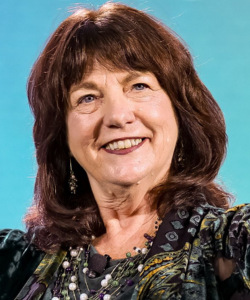 Dr. Susan C. Reinhard, PhD, RN, FAAN, has championed humanistic care as a clinician, educator, researcher, and policymaker. She is a passionate advocate for patients and family caregivers, and she continuously urges nurses to impact healthcare from the bedside to national policy.
Dr. Susan C. Reinhard, PhD, RN, FAAN, has championed humanistic care as a clinician, educator, researcher, and policymaker. She is a passionate advocate for patients and family caregivers, and she continuously urges nurses to impact healthcare from the bedside to national policy. Richard C. Sheerr has served as the Board Chair of The Arnold P. Gold Foundation since 2016, bringing visionary leadership that has significantly advanced the foundation’s mission of compassionate, patient-centered care. As President of Willings Advisors LLC and former leader of The Wagman Primus Group, Mr. Sheerr has generously shared his business acumen with the Gold Foundation.
Richard C. Sheerr has served as the Board Chair of The Arnold P. Gold Foundation since 2016, bringing visionary leadership that has significantly advanced the foundation’s mission of compassionate, patient-centered care. As President of Willings Advisors LLC and former leader of The Wagman Primus Group, Mr. Sheerr has generously shared his business acumen with the Gold Foundation. WASHINGTON, DC, December 18, 2024 – The Arnold P. Gold Foundation and the
WASHINGTON, DC, December 18, 2024 – The Arnold P. Gold Foundation and the  The Arnold P. Gold Foundation, in collaboration with the Journal of Patient Experience, is pleased to announce a forthcoming special collection focused on humanism and patient experience in healthcare, exploring the intersections and divergences between these two important realms.
The Arnold P. Gold Foundation, in collaboration with the Journal of Patient Experience, is pleased to announce a forthcoming special collection focused on humanism and patient experience in healthcare, exploring the intersections and divergences between these two important realms.









 Dr. Manning’s lecture, titled “Wisdom at the Bedside,” will offer a narrative journey of lessons gained through listening and reflecting. Our most powerful teachable moments, she observes, happen not through lectures, articles, test preparation, or textbooks — but simply through listening. Whether we are listening to a patient, a person who steps onto the elevator, a worried loved one, a peer, or even children giggling on a playground, there is much to learn when we open ourselves to hearing from others.
Dr. Manning’s lecture, titled “Wisdom at the Bedside,” will offer a narrative journey of lessons gained through listening and reflecting. Our most powerful teachable moments, she observes, happen not through lectures, articles, test preparation, or textbooks — but simply through listening. Whether we are listening to a patient, a person who steps onto the elevator, a worried loved one, a peer, or even children giggling on a playground, there is much to learn when we open ourselves to hearing from others.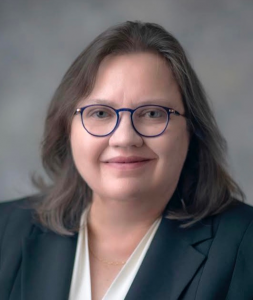 Kathleen Reeves, MD, is the President and CEO of The Arnold P. Gold Foundation. She previously served as Professor and Chair of the Department of Urban Health and Population Science, Director of the Center for Urban Bioethics, and Professor of Clinical Pediatrics at the Lewis Katz School of Medicine at Temple University. A distinguished champion for humanism in health care, Dr. Reeves is committed to working with leaders across disciplines to elevate the patient-clinician relationship and achieve the Gold Foundation’s mission to advance compassionate, collaborative, and scientifically excellent care. As Dr. Reeves finishes her remarkable first year as the head of the Gold Foundation, AACN posed ten questions to this healthcare luminary with a special emphasis on the role academic nursing can play in infusing humanism into patient care.
Kathleen Reeves, MD, is the President and CEO of The Arnold P. Gold Foundation. She previously served as Professor and Chair of the Department of Urban Health and Population Science, Director of the Center for Urban Bioethics, and Professor of Clinical Pediatrics at the Lewis Katz School of Medicine at Temple University. A distinguished champion for humanism in health care, Dr. Reeves is committed to working with leaders across disciplines to elevate the patient-clinician relationship and achieve the Gold Foundation’s mission to advance compassionate, collaborative, and scientifically excellent care. As Dr. Reeves finishes her remarkable first year as the head of the Gold Foundation, AACN posed ten questions to this healthcare luminary with a special emphasis on the role academic nursing can play in infusing humanism into patient care. Molly Stegman, M2
Molly Stegman, M2 Delaney Metcalf, M3
Delaney Metcalf, M3 Peter Dimitrion, M3
Peter Dimitrion, M3

 Anahita Gupta, M1, and Esther Lee, M1
Anahita Gupta, M1, and Esther Lee, M1 Doger Norceide, M1, and Vikki Rueda, M1
Doger Norceide, M1, and Vikki Rueda, M1








